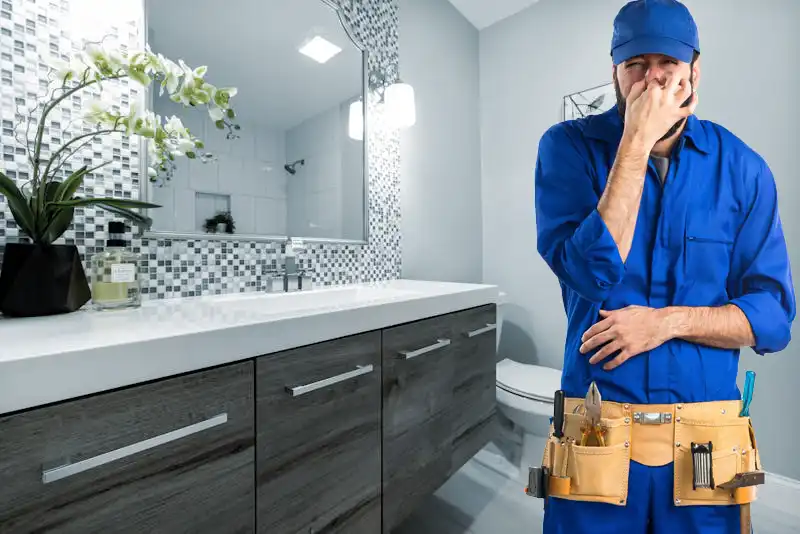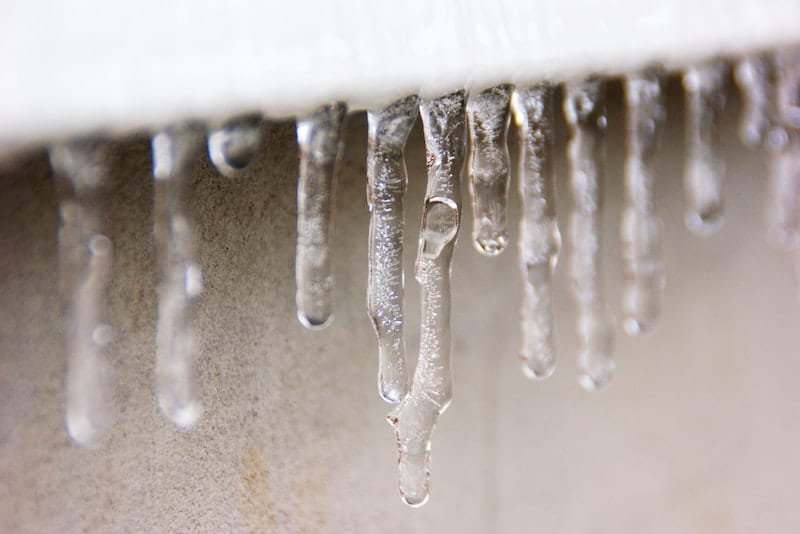Bathrooms are essential sanctuaries in our homes, providing us with a space for hygiene and relaxation. However, nothing disrupts the comfort of a bathroom more than an unpleasant sewage smell. If you’ve ever encountered this issue, you know how alarming it can be. This blog post aims to explore the common causes of sewage smells in bathrooms and offer solutions to help you restore your bathroom’s fresh and clean atmosphere.
Understanding the Problem
Before diving into specific causes, it’s important to understand why sewage smells are problematic and what they indicate about your plumbing system. Sewage odors can signal serious issues such as pipe blockages, leaks, or even structural damage. Ignoring these smells can lead to more significant problems, including health risks from exposure to harmful gases like hydrogen sulfide, ammonia, and methane, which are often present in sewage gases. These gases can cause headaches, dizziness, and respiratory issues, making it crucial to address the source of the odor promptly.
Common Causes of Sewage Smells
One of the most common causes of sewage smells in a bathroom is a dry P-trap. The P-trap is a U-shaped pipe located beneath sinks, tubs, and other plumbing fixtures. Its purpose is to hold water, creating a seal that prevents sewer gases from entering your home. However, if the water in the P-trap evaporates, which can happen if a fixture isn’t used frequently, the seal is broken, allowing sewer gases to escape into your bathroom. This issue can be easily resolved by regularly running water in seldom-used fixtures to ensure the P-trap stays filled. If the trap is dry, simply running water for a few minutes should re-establish the seal and eliminate the odor.
Another common cause of sewage smells is vent pipe blockages. Vent pipes are part of your home’s plumbing system, designed to allow sewer gases to escape outside while bringing in fresh air to help water flow through the drains. If a vent pipe is blocked, it can cause a pressure imbalance in the system, leading to sewer gases being forced out through drains or other openings in your bathroom. Blockages can occur due to leaves, bird nests, or other debris obstructing the vent pipe. Inspecting the vent pipe and clearing any obstructions can restore proper ventilation and eliminate the odors. In some cases, you may need a professional plumber to assist with this task if the blockage is not easily accessible.
Sewer line issues are another potential cause of sewage smells in bathrooms. The sewer line is the main pipe that carries wastewater from your home to the municipal sewer system or septic tank. Cracks or breaks in the sewer line can allow sewage to seep out and create odors that permeate your bathroom. Sewer line issues require professional inspection and repair. A plumber can use cameras to inspect the line and determine the best course of action, which might include repair or replacement of the damaged section. Addressing sewer line problems promptly can prevent further damage and more significant odors.
Bacterial growth in drains can also contribute to sewage smells. Organic matter such as hair, soap scum, and grease can accumulate in drains, creating an ideal environment for bacteria to thrive. As bacteria break down organic matter, they release gases that can cause unpleasant odors in your bathroom. Regularly cleaning your drains using a mixture of baking soda and vinegar, followed by hot water, can help break down and flush away organic buildup. Commercial drain cleaners can also be effective, but they should be used sparingly to avoid damaging pipes. Regular maintenance can keep your drains clear and prevent bacterial growth from causing odors.
Toilet wax ring problems are another common culprit behind sewage smells. The wax ring seals the base of your toilet to the flange on the floor, preventing sewer gases from leaking out. A damaged or improperly installed wax ring can allow sewer gases to seep into your bathroom. If you suspect the wax ring is the culprit, you’ll need to remove the toilet and replace the wax ring. This is a relatively straightforward DIY task, but if you’re uncomfortable doing it yourself, a plumber can handle it for you. Ensuring a proper seal can prevent odors and maintain a fresh-smelling bathroom.
Less Common Causes of Sewage Smells
While the above causes are the most common, other, less frequent issues can also lead to sewage smells in your bathroom. Leaky pipes, for instance, can develop due to corrosion, physical damage, or poor installation. Leaky pipes can allow sewer gases to escape, especially if the leaks are in hidden areas like under the floor or behind walls. Inspecting for signs of leaks, such as water stains, mold growth, or unusually high water bills, can help identify and address the issue. Repairing or replacing the leaking pipes should eliminate the odors and prevent further damage to your home.
Improperly installed plumbing can also cause sewage smells. Errors during installation can lead to issues like reverse slopes in pipes, inadequate venting, or poorly sealed joints. Improperly installed plumbing can disrupt the flow and containment of wastewater, leading to sewage smells. A professional plumbing inspection can identify and correct installation errors. This might involve reconfiguring pipes, adding vents, or resealing joints. Ensuring your plumbing is installed correctly can prevent odors and maintain the integrity of your plumbing system.
Clogged drain vents can also be a source of sewage smells. Drain vents help to regulate air pressure in your plumbing system, allowing waste to flow freely and preventing sewer gases from entering your home. A clogged vent can create a vacuum effect, preventing wastewater from draining properly and causing sewer gases to back up into your bathroom. Clearing the vent, often located on the roof, can resolve the issue. If you’re uncomfortable working on the roof, hire a professional plumber to clear the blockage safely. Maintaining clear vents can ensure proper ventilation and prevent odors.
Preventative Measures
Preventing sewage smells in your bathroom involves regular maintenance and attention to your plumbing system. Regular cleaning and maintenance can help keep your plumbing in good condition. Clean drains regularly to prevent bacterial growth and organic buildup. Check P-traps to ensure they are filled with water, especially in seldom-used fixtures. Periodically inspect the wax ring and other seals around your toilet for integrity. By keeping your plumbing system clean and well-maintained, you can prevent odors and ensure your bathroom remains a pleasant space.
Professional inspections are also crucial in preventing sewage smells. Schedule annual plumbing inspections with a professional plumber to identify and address potential issues before they become significant problems. Sewer line inspections should be done every few years, especially if you notice recurring odors or other issues. Professional inspections can catch problems early and prevent them from escalating into more significant issues that cause odors and require costly repairs.
Proper use of fixtures can also prevent sewage smells. Avoid flushing non-flushable items like wipes, feminine hygiene products, or paper towels to prevent clogs and buildup. Use strainers in your sinks and tubs to catch hair and other debris, preventing them from entering the drain and causing blockages. By using your plumbing fixtures properly, you can maintain the flow and functionality of your system and prevent odors.
Call a Plumber for the Sewage Smell in Your Bathroom
A sewage smell in your bathroom is not only unpleasant but also a potential indicator of more serious plumbing issues. Understanding the common causes and implementing preventative measures can go a long way in maintaining a fresh and odor-free bathroom. Regular maintenance such as cleaning drains, checking P-traps, and ensuring proper use of fixtures can prevent many of these issues from arising. However, it is important to recognize that while some solutions are DIY-friendly, others may require professional assistance. Professional plumbers have the expertise and tools to accurately diagnose and fix plumbing problems, ensuring long-term solutions rather than temporary fixes.
Ignoring the problem can lead to more significant issues, such as extensive water damage, mold growth, and even structural damage to your home. Sewer gases can pose health risks to you and your family, making it essential to address the source of the odor promptly. Therefore, don’t hesitate to contact Spindletop Plumbing for expert advice and services to ensure your plumbing system remains in top condition. Our team is equipped to handle everything from minor repairs to major overhauls, ensuring that your bathroom remains a safe and pleasant space. Your comfort and safety are our top priorities, and we are committed to providing you with reliable, professional service.
About Spindletop Plumbing
Spindletop Plumbing has been serving Southeast Texas for over two decades, providing reliable and professional plumbing services. Our experienced team is dedicated to solving all your plumbing needs, from routine maintenance to emergency repairs. We understand the unique plumbing challenges that homeowners in Southeast Texas face and are equipped with the latest tools and techniques to address them effectively. Our commitment to customer satisfaction means we take the time to understand your specific needs and provide tailored solutions that ensure long-lasting results. Contact us today to schedule an inspection or learn more about how we can help keep your home’s plumbing system running smoothly. Whether you are dealing with a sewage smell, a clogged drain, or any other plumbing issue, Spindletop Plumbing is here to help. Let us take care of your plumbing needs so you can enjoy peace of mind and a fresh, odor-free bathroom.
Spindletop Plumbing
409-748-5186
https://facebook.com/spindletopfixit/
Google Business Listing



